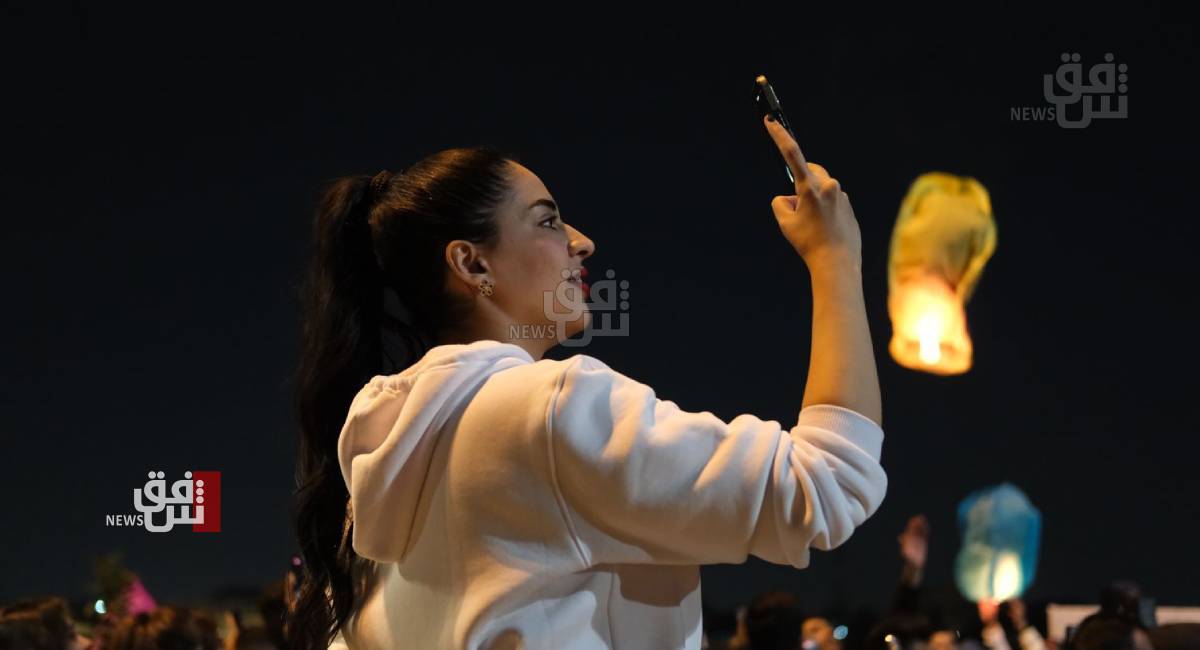Sexual harassment in Iraq's sports and academia exposes systemic failures, sparks demand for reform

Shafaq News/ Sexual harassment in Iraq's sports and educational
institutions is reaching alarming levels, as new cases of abuse and
exploitation continue to surface, exposing systemic failures to protect women
and girls from predatory behavior. The latest revelations, involving a
promising athlete and a university dean, have ignited public outrage and
highlighted the urgent need for stronger legal safeguards and cultural change.
These allegations come as no surprise to human rights organizations in
Iraq. The Iraqi Human Rights Observatory warned in 2022 of a surge in sexual
harassment cases in what are supposed to be safe areas, including government
institutions, schools, and workplaces. Victims, both men and women, have reported
incidents of harassment but have been reluctant to come forward due to fear of
social stigma and reprisals.
Harassment In Sports
Hiba Mohammed, 22, a promising track and field athlete, revealed that
she had been sexually harassed and pressured to compromise her body in exchange
for the opportunity to compete internationally. Her story highlights the
challenges faced by women in Iraq, particularly those seeking to pursue careers
in sports.
"I always dreamed of becoming one of Iraq's champions," Mohammed
said. "But the harassment and sexual demands crushed my hopes." She
attributed her struggles to "customs, traditions, societal norms, and
family rejection," which hindered her progress in the sport.
Despite the obstacles, Hiba Mohammed remains determined to pursue her
athletic goals.
Mohammed's case has sparked a wider conversation about the prevalence of
sexual harassment in Iraqi society and the need for greater protection for
victims. "It's a disease," she said, expressing her shock at the
level of immorality she encountered within the sports community.
A prominent Iraqi sports expert has sounded the alarm about the
declining participation of women in team sports due to rampant sexual
harassment. Ghassan al-Abbadi pointed out that the fear of sexual exploitation
is driving women away from team sports like football and basketball, forcing
them to limit their involvement in individual sports.
Al-Abbadi said that the main challenge in addressing this issue is “the
difficulty in proving sexual harassment cases”. “Many women are hesitant to
file formal complaints due to societal stigma and fear of being ostracized. The
conservative nature of Iraqi society and the fear of family dishonor often
prevent victims from seeking justice,” he added.
To combat this problem, al-Abbadi called for the establishment of
“specialized, confidential committees” where victims of sexual harassment can
report incidents without fear of public exposure. “These committees would play
a crucial role in gathering evidence and pursuing legal action against
perpetrators.”
“By creating a safe space for victims to come forward, we can
significantly reduce the prevalence of sexual harassment in sports,” al-Abbadi
said, emphasizing the need for increased awareness and education among women
about their rights and the importance of reporting harassment.
Harassment in Education Institutions
A recent sex scandal involving a university dean in Basra has brought
the issue of sexual harassment in Iraq to the forefront of public discourse.
Images of the dean engaged in inappropriate acts with a student in his office
were widely circulated on social media, exposing a pattern of abuse of power
and exploitation.
The widespread media coverage of the Basra University scandal has
sparked public outrage and renewed calls for stricter enforcement of existing
laws and the development of new legislation to protect women and girls.
Role Of Social Conditioning
A leading Iraqi social researcher has attributed the rampant prevalence
of sexual harassment in the country to deep-rooted societal issues, including
patriarchal norms and a distorted view of women.
Nada al-Abbadi, a sociologist, pinpointed the problem to "the
increasing repression in our eastern societies and the derogatory view of women
that men acquire during their upbringing amid a domineering patriarchal
society." She further emphasized the harmful stereotype that confines
women to the domestic sphere, reducing them to mere objects of pleasure and
procreation.
Al-Abbadi argued that the strict gender segregation and preference for
sons over daughters, particularly prevalent in impoverished and war-torn
societies like Iraq, have significantly damaged the status of women.
“We need a paradigm shift through education, policy implementation, and
stronger legal protections to elevate women's position and challenge harmful
stereotypes.
Hiba Mohammed, the Iraqi athlete who bravely shared her experience of
sexual harassment, exposed the impunity enjoyed by perpetrators. She explained
that many men feel emboldened to harass women because they believe they can get
away with it, given the societal stigma often attached to victims. Mohammed
said that silence is imposed on victims who fear being blamed and ostracized.
Awareness
Psychology professor Ahmed al-Dhahabi warned against the severe
psychological consequences of sexual harassment, including depression, anxiety,
and even suicidal thoughts. He called for comprehensive education programs to
challenge harmful societal norms and promote gender equality.
"Sexual harassment can have devastating effects on victims,"
al-Dhahabi said. "We need to create a society where women feel safe and
empowered."
Boshra al-Abadi, a women's rights activist, argued that the lack of
strong legal protections for victims has contributed to the prevalence of
sexual harassment in Iraq. She pointed out that current laws often carry
lenient penalties, allowing perpetrators to evade justice.
"The existing laws are simply not enough to deter
perpetrators," al-Abadi said. "We need harsher punishments and a more
effective judicial system."
The Iraqi Human Rights Observatory has called on authorities to
strengthen law enforcement and ensure that victims feel safe coming forward.
The organization has also urged the government to implement stricter privacy
protections for victims.
To address the issue, the National Security Apparatus has launched a
campaign called "We Have Your Back," aimed at encouraging victims to
report incidents of sexual harassment. The campaign promises to protect the
privacy of victims.
Yasra Kareem, the Director General of the Women's Empowerment Department
at the Iraqi Council of Ministers, told Rudaw TV that her department is working
to establish a comprehensive code of conduct for all government institutions to
prevent sexual harassment.
"We are working to ensure that there are clear rules and regulations
in place to prevent such incidents from happening in government
institutions," Kareem said. She also noted that the Iraqi Interior
Ministry has established specialized departments to provide support to women
who have been victims of sexual harassment.
Iraqi Law
Sexual harassment is defined in Iraq's Labor Law No. 37 of 2015 as
"any physical or verbal sexual behavior, or any other sex-based conduct,
which affects the dignity of women and men, is undesirable, unreasonable, and
insulting to those who receive it, and leads to the rejection or non-submission
of any person to such behavior, explicitly or implicitly, to make a decision
that affects their job."
Article 10 of the Iraqi Labor Law prohibits "Sexual harassment in
the workplace and occupation, whether in the job search, vocational training,
employment, or working conditions. It also prohibits any other behavior that
creates an intimidating, hostile, or degrading work environment to those
subjected to such behavior."





